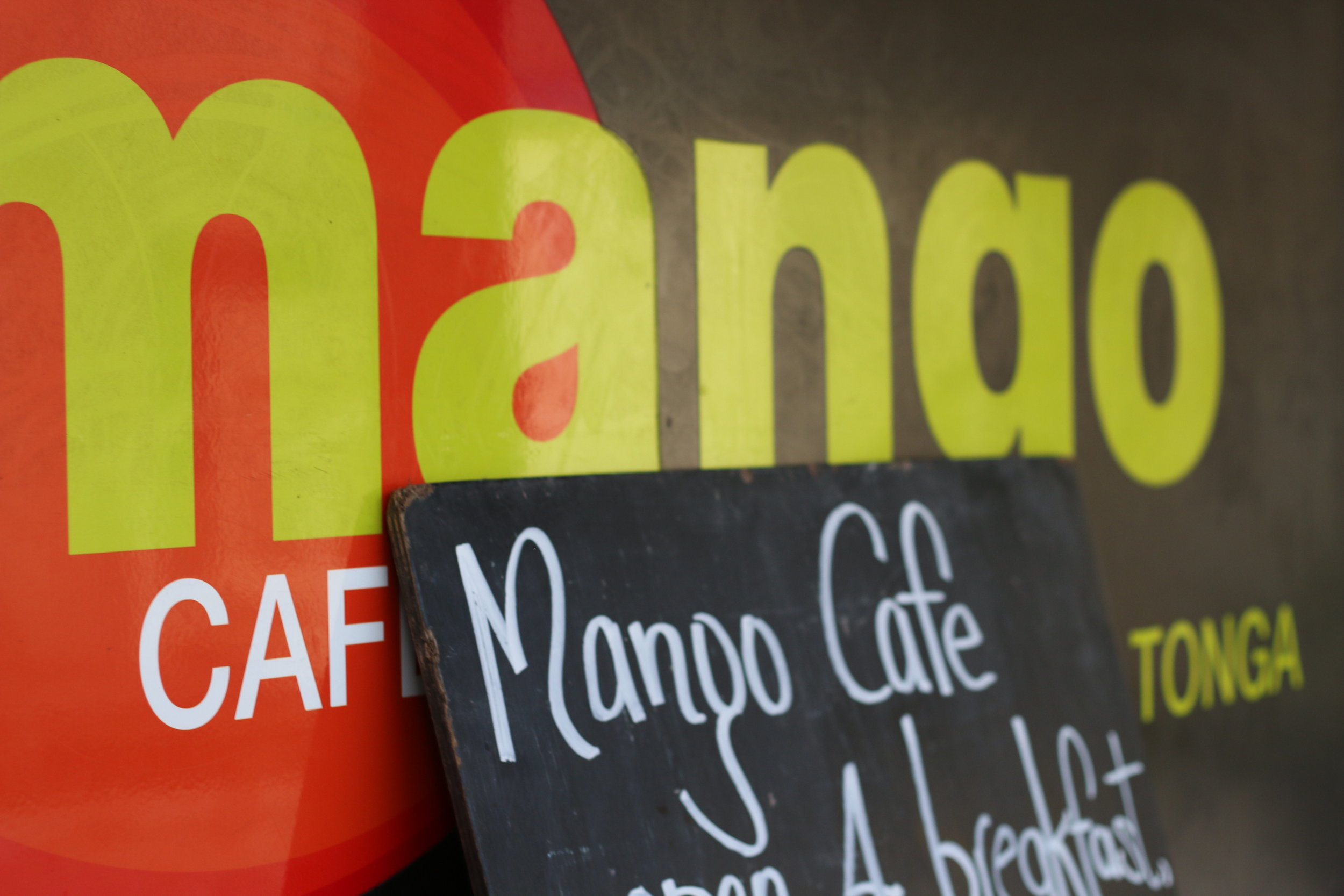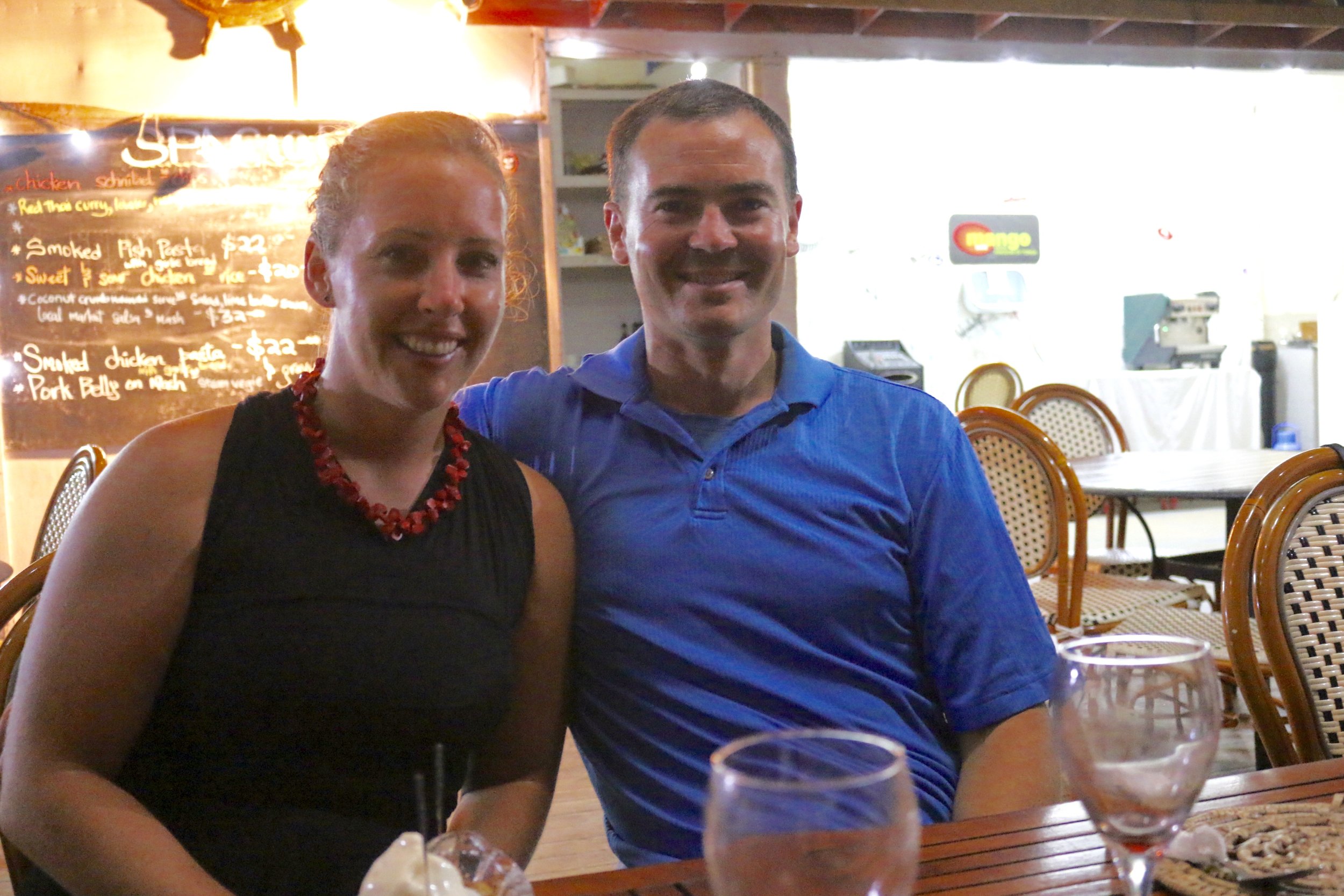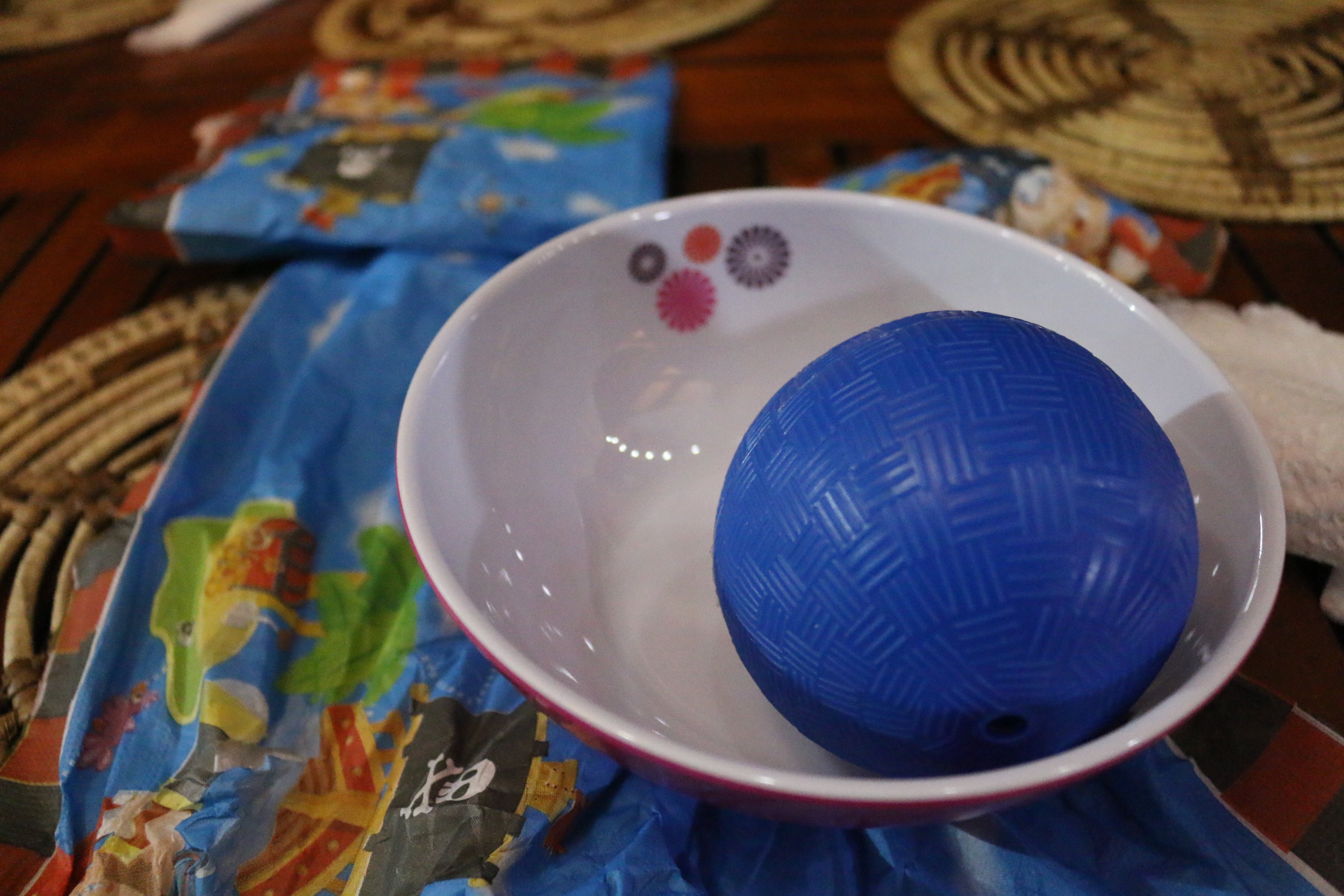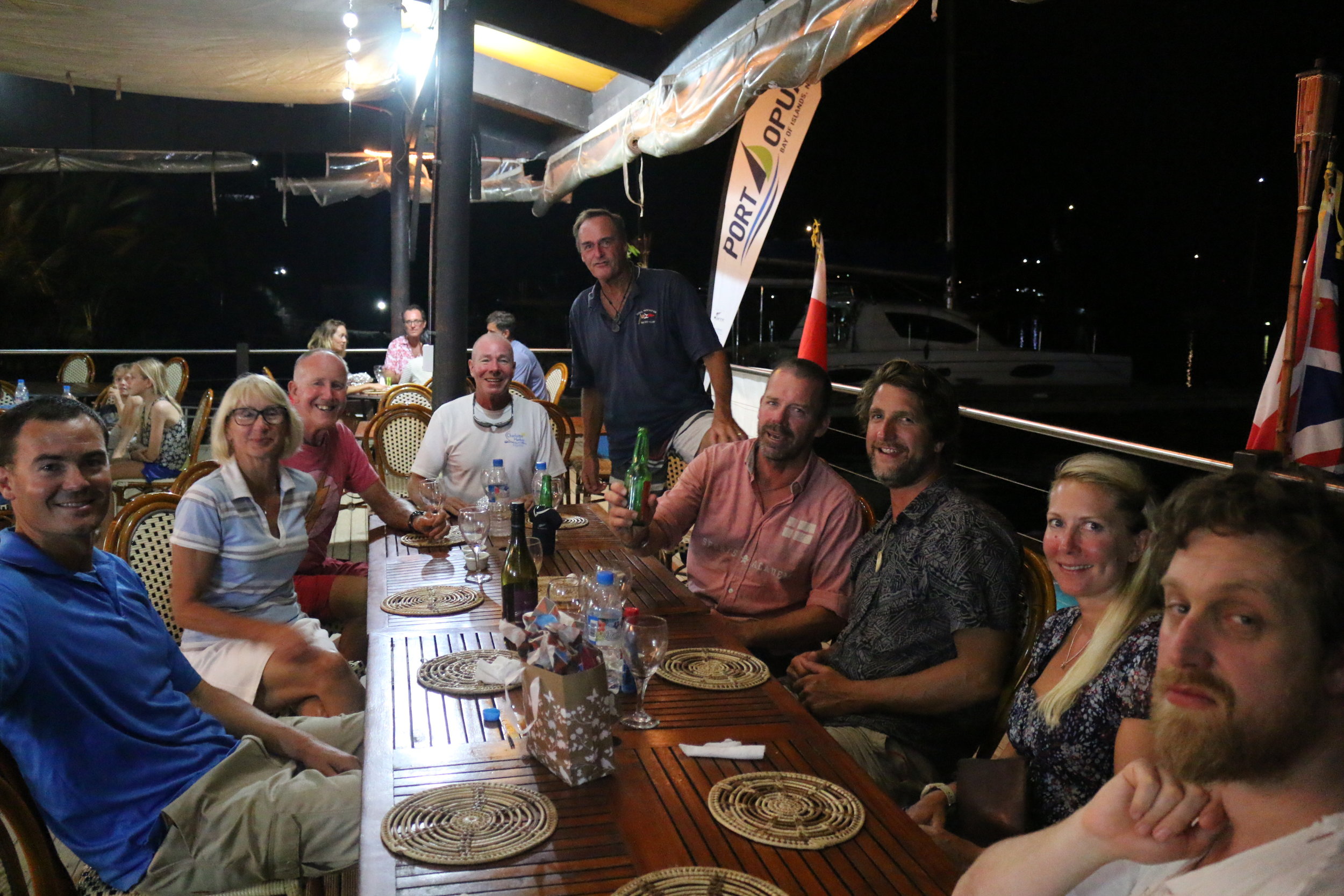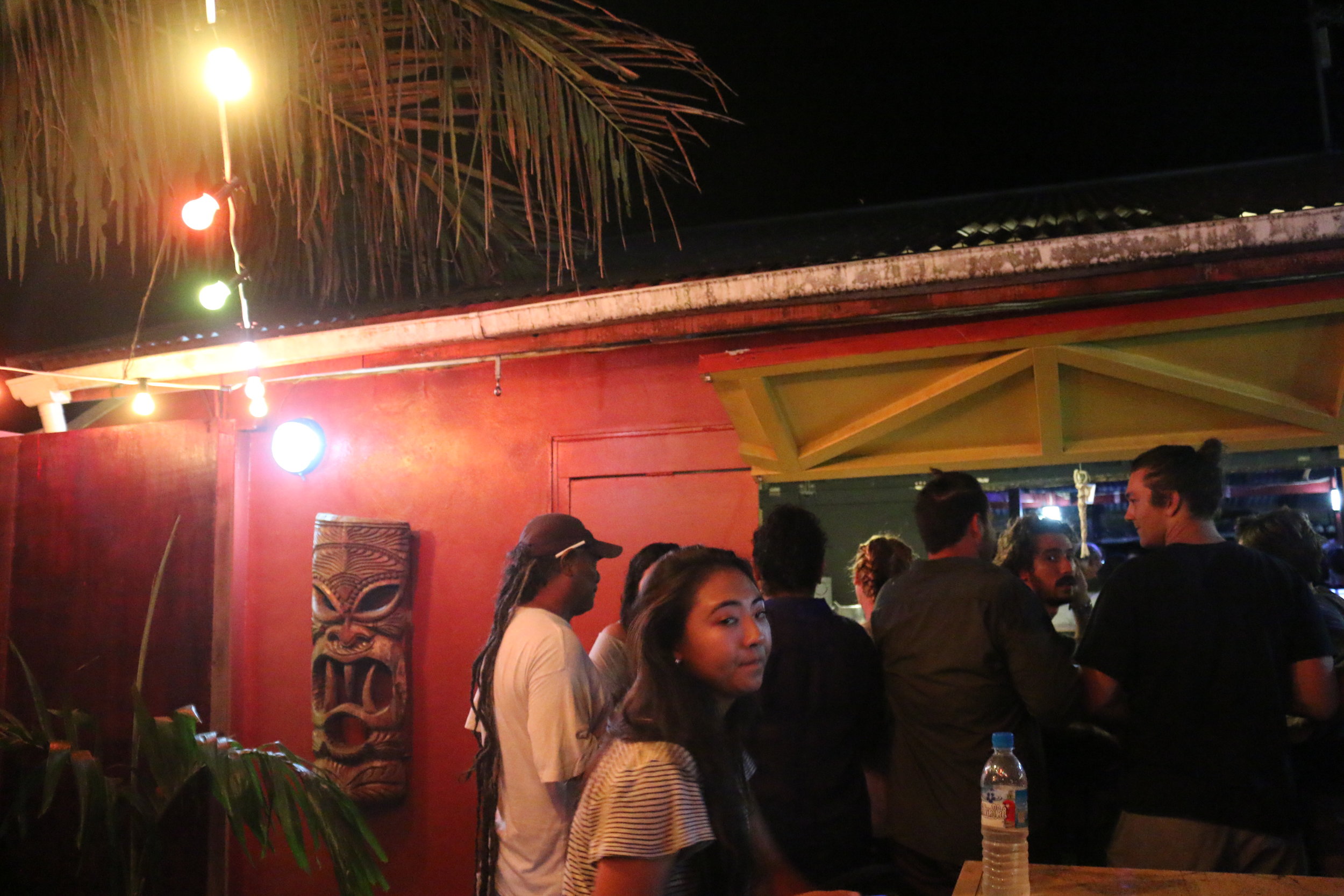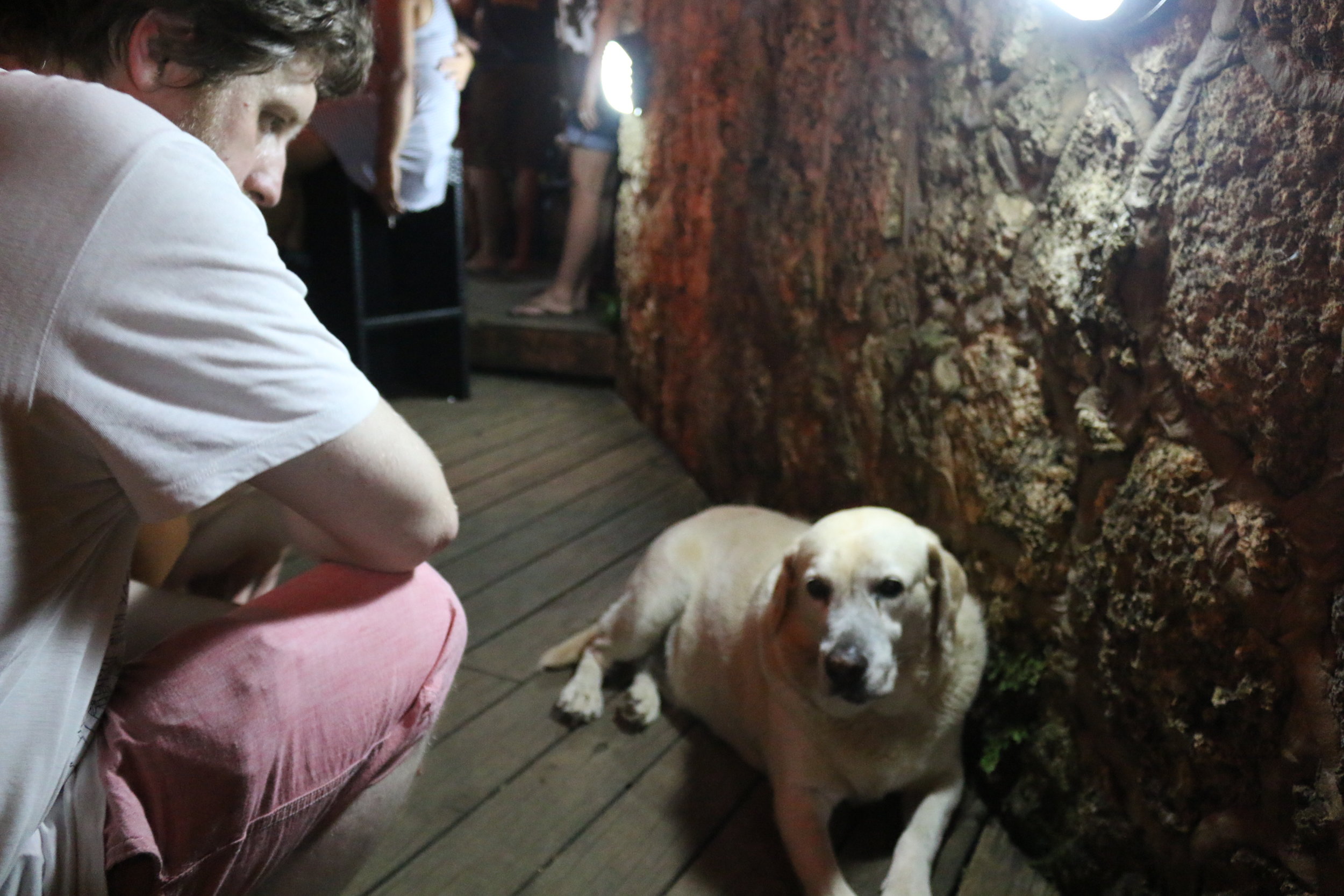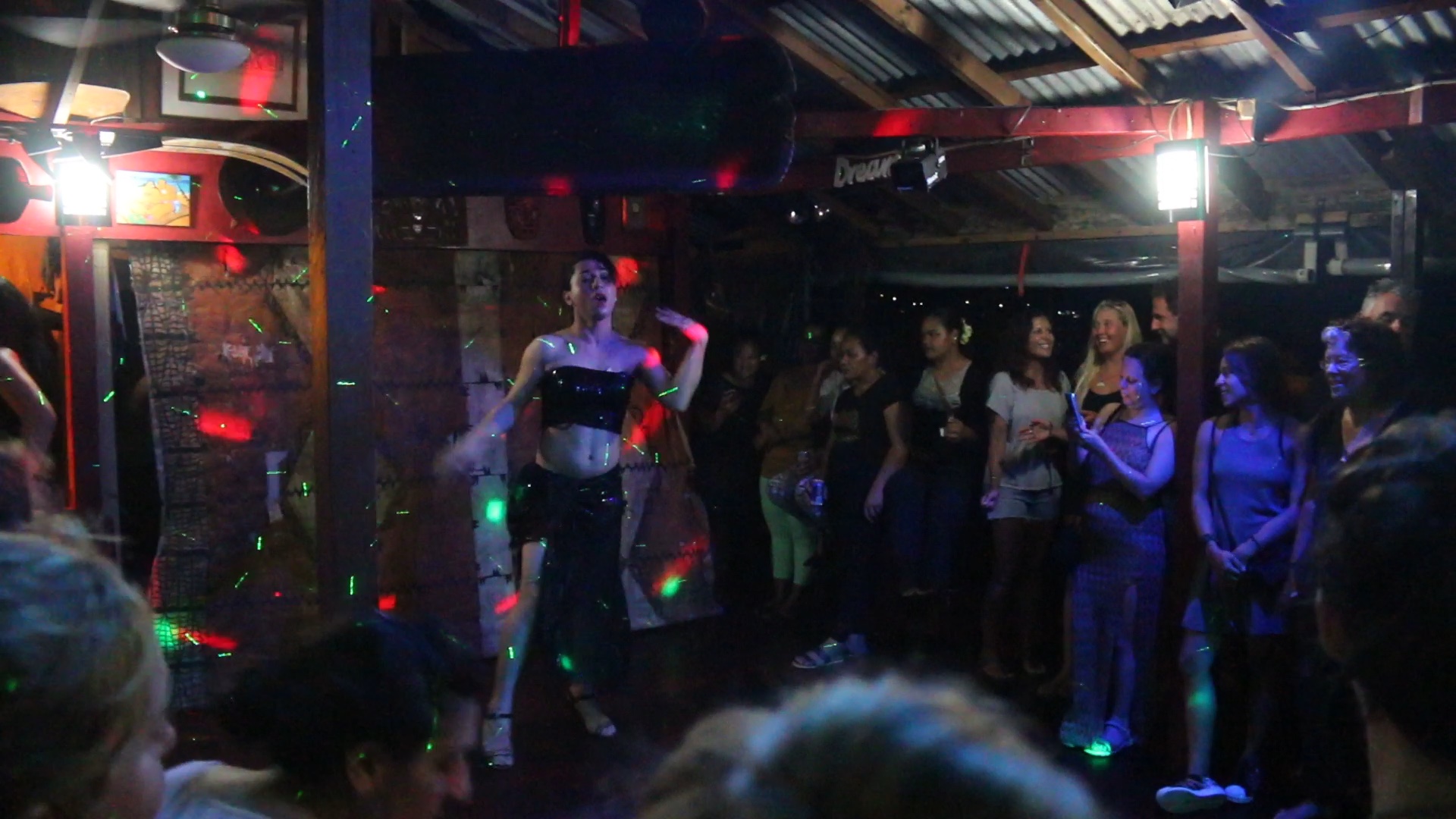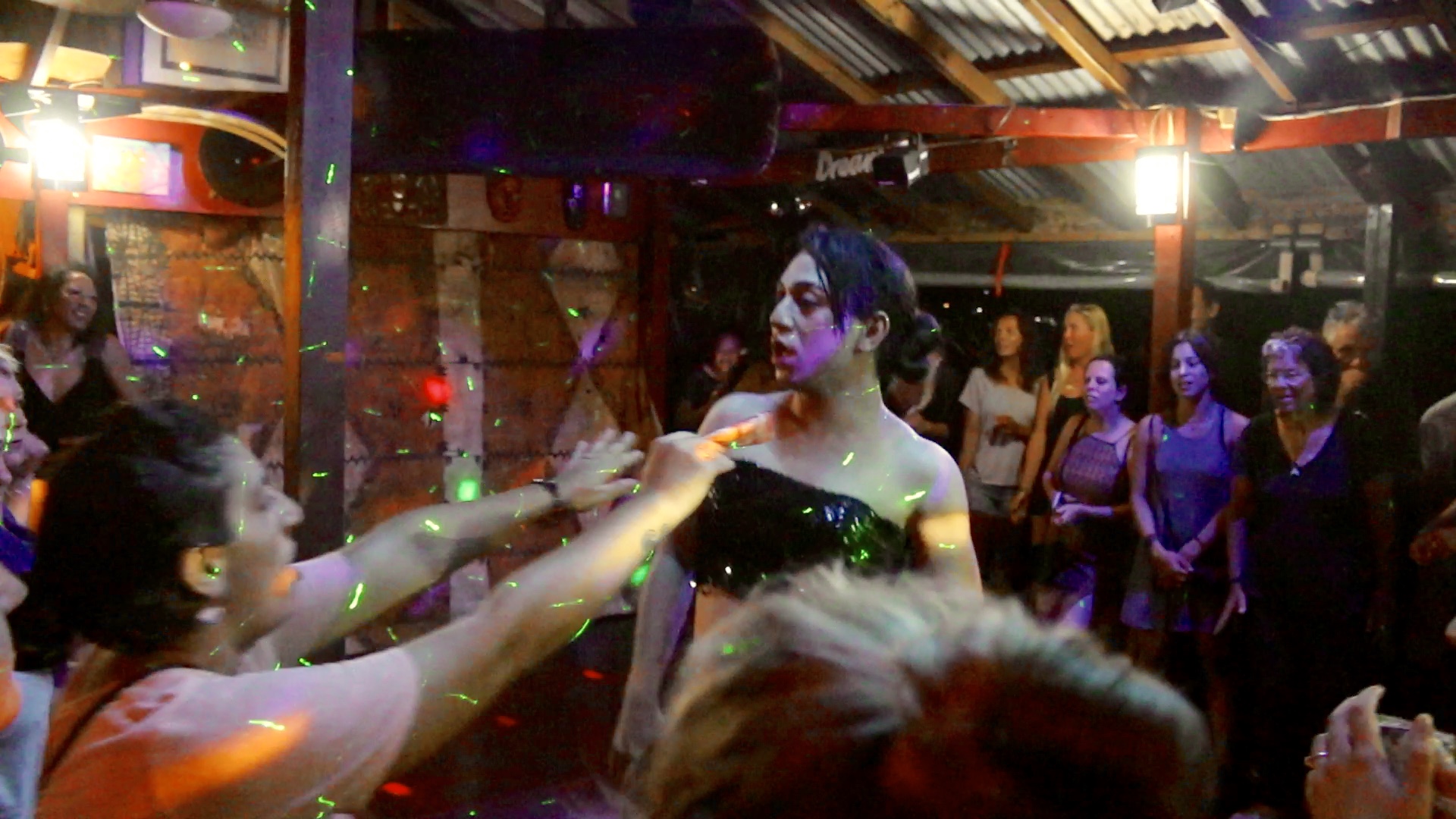I get two Birthdays this year. See, Tonga is a full day ahead of the United States. So, October 5 in Tonga is October 4 in the US and October 5 in the US is October 6 in Tonga. Andrew tried to convince me that we should leave Niue late enough on October 4 that we cross the date line at midnight and jump straight to October 6. “Wouldn’t it be fun to skip your birthday? Then you can be one year younger.” Absolutely not. I mean to take full advantage of this.
So, we arrived in Tonga on October 3rd. After some adventure trying to squeeze Sonrisa into a crowded customs dock, we settle in to pay fees, fill out paperwork and otherwise do our check in duties. Several male officials pay us a visit, each wrapped in long, navy blue skirts, topped with wide belts intricately woven from coconut bark. Their baby blue button down shirts are neatly tucked into their belt. They look clean and tidy. Two very large Tongan men from the health inspector’s office pull up in a van and ask that Andrew join them for a ride to the bank. All I can do is hope for the best as they pull away and leave me at the dock. I’m sure Andrew can hold his own if they take him into a Tongan jungle and leave him for dead. Right?
Nah, they are back in a flash and all is well. Tonga is known as the “Friendly Islands.” Soon, we are settled in on a mooring and enjoying the calmest anchorage we have experienced in our entire trip. The water is so flat, you can see the reflection of the sky.
The next morning, Andrew is making breakfast and I am writing when we hear “Hello! Good morning!” and a tap-tap-tap on the hull. Andrew pokes his head above decks. I hear him chatting with another gentleman, then inviting him aboard. I quickly change out of my pajamas for our guest.
When I poke my head on deck, I am greeted by a smiling Tongan man with bare feet and a sachet of wares. He lays out his sachet on Sonrisa’s deck and I go back below to make sure the bacon isn’t burning. We offer coffee and breakfast to our friend, Maka. Maka arrived just in time for Andrew to acquire a birthday present for me. They haggle over prices, paid both in Tongan Dollars or “Pa’anga” and old rope that Maka would like for his horse. Maka rubs his hands over Sonrisa’s genoa sheets, hoping to acquire one just like that. But alas, we need those ropes for sailing and we have no extra. He settles for one of our old mooring ropes and trades us a Tongan flag to hoist up Sonrisa’s mast. Once the sale, breakfast and coffee are complete, Maka smiles for some pictures and climbs down, complimenting Sonrisa as a “beautiful boat”. Sonrisa perks up at the compliment.
My birthday arrives the day of the Blue Water Festival regatta. We decided to team up and race Lufi given that racing is more fun as a team. Lufi greets me with a Happy Birthday sign, and I hear promise of birthday balloons later, too. The start horn is blown from the Captain’s Meeting, requiring the Captains to race back in their dinghys. We watch various other boat’s captains wiz by in their dinghies with operable 15 horse power engines. Some time later, Lufi’s captain putters up with her somewhat operable 6 horse power outboard. We drop Lufi’s mooring and motor out of the anchorage.
Most of the fleet has motored away from us. No worries, we hit the buoy where the sailing is supposed to begin according to the rules and hoist the chute. BIRTHDAY BALLOONS! Lufi has to have the cutest spinnaker I have ever had the pleasure of hoisting.
We had a lot of fun, held out until the end and crossed the finish line with the sails up instead of motoring after the 3 p.m. mark as the rules apparently allowed. As a result, we lost our strenuously held position in the fleet to our tightest competitor who rolled up his sails and puttered off. A birthday motor race? Ridiculous.
We headed to the Mango Cafe to recover with a slosh of wine and a lobster red curry. Laura made sure I had sparklers in my ice cream and my rag-tag group of sailing friends (and one guy I had not met before) sang me the birthday dirge. I call it the birthday dirge because once you hear the Swedish and/or Norwegian version of birthday wishes, you will forever feel like the English version is a poor substitute. Luckily, Jonas The Swede was there and also sang me the Swedish birthday song. It is far peppier and includes a little dance.
I am presented with a beautiful red coral necklace and bracelet from Andrew, courtesy of Maka. I also receive a “bo-wl" and a “boll” from the Lufis to assist me in learning the “proper” pronunciation - the British (and therefore correct version) of each sound exactly the same to my untrained American ears. Never mind that “boll” is actually spelled b-a-l-l.
We cap the night off with a quick trip over to the bar that should have been named The Tropical Sweaty. Stepping carefully down the stairs, we turn sideways to shuffle around the fattest dog we have ever met. The bar owner’s dog (considering himself the bar owner) heaved his sausage shaped body up the stairs to greet us and then show us in. Pushing through the slick and bouncing crowd, we arrive to see a fabulous fakaleiti dancing and lip-syncing to Whitney Houston’s “Somebody Who Loves Me”. FN1. Apparently, the tradition of placing money down dancers costumes continues in this venue as well.
FN1: To top off this most wandering of blog posts, I shall leave you with a lesson on a small piece of Polynesian culture. Fa’afafine (French Polynesia) or Fakaleiti (Tonga) are males at birth but are raised and live as “ladies”. They are nearly as common in the islands as men and women, and they are accepted and welcomed by the Polynesian society. (Of course those associated with the Western religious missions are of a different mind.) Polynesians would say it is not quite right to attribute a Western interpretation to fa’afafine/fakaleiti by mislabeling them as "gay," "homosexual," or "drag queens;” instead, they are a third gender. In Polynesia, people claim that there is no such thing as being "gay" or "homosexual." Fa’afafine or fakaleiti, as a third gender, have sexual relationships almost exclusively with men who do not identify as fa’afafine/fakaleiti, and sometimes with women, but apparently not with other fa’afafine/fakaleiti.
Source: The Great and Powerful Wikipedia





